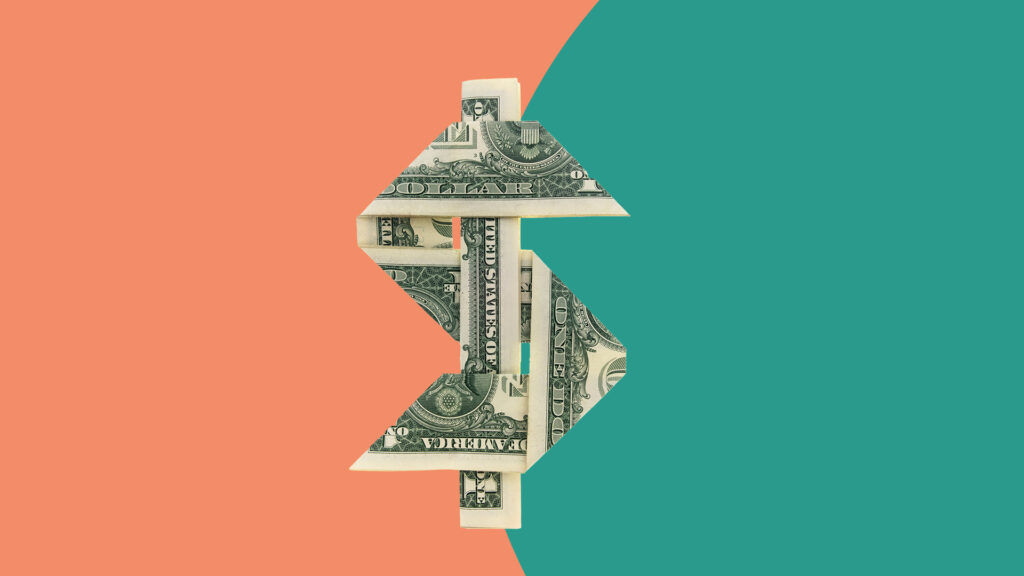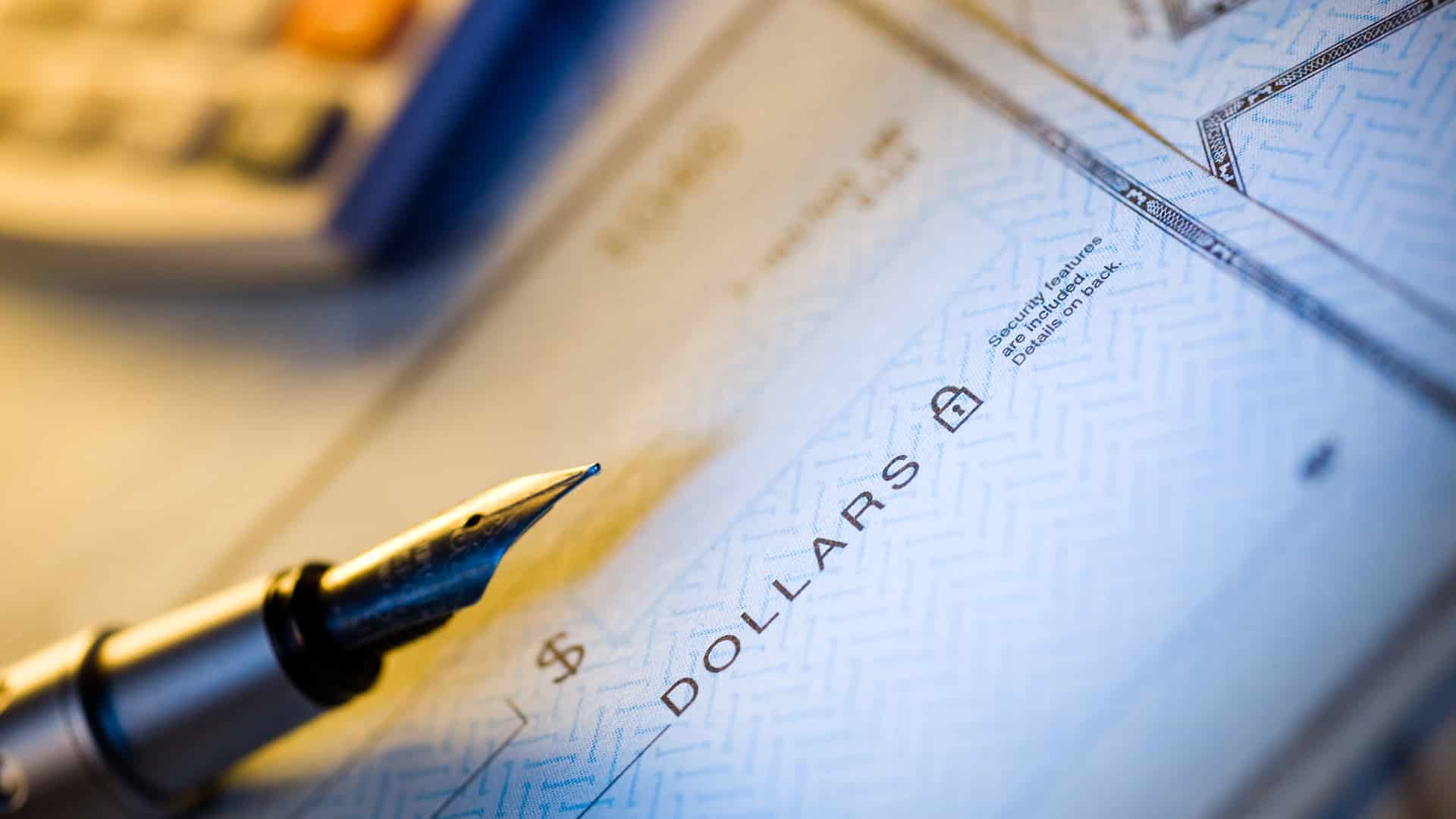Most products on this page are from partners who may compensate us. This may influence which products we write about and where and how they appear on the page. However, opinions expressed here are the author's alone, not those of any bank, credit card issuer, airline or hotel chain.
In the menagerie of financing options, personal loans can be the chameleon. Whereas other loans can only be used for a sole purpose, there's a lot of flexibility in how to use the funds from a personal loan. Personal loans can be used for emergency expenses, home improvements, funding a wedding or vacation, or even crushing your debt. In our simple step-by-step guide, we'll help you navigate the ins and outs of using a personal loan to pay off debt, so you can start your journey to a debt-free future.
Getting Out of Debt How to Use a Personal Loan to Get Out of Debt
Ready to get started? Let's get into the weeds on how you can use a personal loan to pay off debt, and how to approach each step and decision:
-
1
Compare Personal Loan Offers
First, do your homework and get a few initial quotes. Financial institutions—think banks and credit unions—online lending platforms, and P2P marketplaces can all offer personal loans.
-
2
Do the Math
Figure out how much you would save on interest on you loan amount, calculate your monthly payments, and check for prepayment penalties. If the math is overwhelming, don't worry! Slickdeals has a loan calculator you can use.
-
3
Apply for the Loan
After you've mulled over all the important factors, decide on the loan and lender you'd like to go with. Once you do, you can officially apply.
-
4
Receive Your Funds & Pay your Debts
Consolidate your debts into a single payment with your loan. Now, set a payment plan to pay off the loan.
-
5
Repay the Loan
Set up automatic payments to reach the minimum monthly payment each month for your personal loans. Make sure you don't let other expenses build up and be frugal until your debt is paid.
Benefits of Using a Loan To Pay Off Debt
When you use a personal loan to knock down debt, you are doing what's known as debt consolidation. In a nutshell, debt consolidation is when you lump together multiple, high-interest forms of debt into a single, new loan. Here's why using a personal loan to knock down debt might be a good choice for you:
Make monthly payments more affordable.
By consolidating your debt, you could lower your monthly payments. This means freeing cash to cover your basic living expenses or putting toward other money goals like an emergency fund. Debt consolidation can alleviate stress if your debt has stretched you financially.
However, when you lower your monthly payments, it could stretch out the life of the loan. And this equates to paying more in interest fees. But if it helps make your monthly payments more manageable, it could be a good choice for you.
Get a lower interest rate.
Another potential benefit of debt consolidation is getting a lower interest rate for all your debts. If you have high-interest debt, paying a lower rate means more money saved in interest fees, and more cash in your pocket. However, if you lower the interest rate and your monthly payments, depending on how the math shakes out, you could end up paying the same—if not more—interest.
Simplifies your debt.
Say goodbye to juggling multiple monthly payments with different due dates and amounts. You can make paying debt easier with one payment versus multiple. However, not all lenders will make direct payments to lenders with your existing debts.

Best Loans for Debt Consolidation & Credit Card Debt
How To Use a Personal Loan To Pay Off Debt
1. Compare Offers
It's important to get a quote before you actually apply for a loan. Many lenders let you get prequalified, which means you'll be able to see your odds of getting approved for a personal loan, including information about the loan amounts, terms, and rates you qualify for. Compare offers from multiple lenders to see which is the best fit for your needs and situation. The beauty of getting prequalified is that this results in only a soft pull of your credit and won't negatively impact your credit score.
These are estimates, and should be roughly the same as what you'd get qualified for—unless your financial situation or credit changes. If your financial situation shifts after you get prequalifed, you might find yourself with a different offer when you apply for a personal loan.
2. Do the Math
When comparing personal loan offers, check the following:
Loan amount. Is the amount you're preapproved for enough for your debt consolidation? The amount you're approved for depends on your own financial situation and credit score. Typically, most lenders offer loan amounts up to $50,000; some might offer up to $100,000.
Monthly payment. Give your budget a once-over to make sure your monthly payments are manageable.
APR. You generally want to look for the lowest APR as it's the cheapest option because you pay less in overall interest. In some cases, it might make sense to choose a higher-rate APR if there is a lower origination fee or you can afford to make higher monthly payments for a shorter-term loan.
Term. How long will it take for you to pay off the loan? Personal loan terms are usually between 12 and 60 months. It's important to look at your other financial obligations and money goals you'll be juggling during the length of the loan to determine what you can afford, and for how long.
Prepayment penalties. It might seem strange that you would get hit with a fee for paying off a loan early. You're doing the good work to pay it off with laser focus, right? But that's because the lender would lose money on interest if you could knock down the debt in no time. Some lenders do charge a prepayment penalty, so check for this.
Other fees. Common personal loan fees include origination fees, which are either flat or anywhere from 1% to 8% of the loan amount. An origination fee is a one-time fee that might include the application fee, credit check and other administrative and processing fees that are part of applying for the loan. You'll also want to look at the late fees and insufficient funds fee.
What debt consolidation can look like:
- Before consolidation: So how much can you potentially save? Let's say you have $20,000 in credit card debt and your average interest rate is 22%. If it took you five years, or 60 months, to pay it off, you're looking at $13,143 in interest paid.
- After consolidation: Now, what if you consolidated that $20,000 worth of debt? If the interest rate on your personal loan is 15%, the interest you pay over the loan is $8,548, equating to nearly $8,600 in savings.
If you run for the hills at the thought of doing math, no need to fret. We have a handy loan calculator that helps you figure out your monthly payments.
3. Apply for the Loan
When applying, you'll need to provide the following:
- Personal information
- Proof of identity
- Income verification
- Employer verification
- Bank statements
- Proof of address
The lender will also do a credit check. This will be a hard pull of your credit, which can negatively impact your score.
The good news is that if you're applying for multiple personal loans within a short period of time, these inquiries count as one. That's because the credit bureaus know you're simply shopping around for the best terms and rates for your loan. The exact time frame varies, and can be anywhere from 15 to 45 days, depending on the credit scoring model used in the application process.
4. Receive Your Funds
Another benefit of personal loans is that they tend to disburse loans faster than other types of financing. You can typically have the funds dropped into your account within 1 to 3 business days. In some cases, if things go without a hitch, you're looking at next-day or same-day funding.
5. Repay the Loan
Now that you've consolidated your debts into a single payment, make sure you have a repayment strategy in place. Set up autopay so you never miss a payment, and do your best to stay within your budget so you don't end up falling into debt again.
Bottom Line
Getting a personal loan to consolidate your debt and pay off your outstanding balance quicker is easier than you think. Plus, you can streamline your payments, lower your monthly payments, or save on interest fees.
It's important to do your research to understand your options so you know exactly what to expect when you take out a loan. Don't forget to do the math and look at the big picture of how much you will actually save.
Frequently Asked Questions
-
It depends on your situation. Factors that come into play include your debt load, your approval amount, and your current interest rate versus the new interest rate.
If you can pay off your debt before the promotional zero or no interest balance period ends, it could save you more with a balance transfer than if you took out a personal loan. If you need more than a year to pay off your debts, a debt consolidation plan may be a better option. But saving money isn't the only thing to consider. You'll want to also consider your other financial obligations, monthly payments, and fees.
-
Technically you can. However, lenders may have rules as to how many personal loans you can take out with them. Or there might be a waiting period before you can apply for a second personal loan.
You might also want to think twice about taking out a personal loan to pay off an existing personal loan. It could cause a vicious, never-ending debt cycle.
-
It largely depends on your unique situation. If you're financially stretched, and debt consolidation by way of a personal loan can lower your monthly debt payments, then it could be a good idea. Or if you get approved for a lower interest rate than the average of your existing debt, then it could help you save.
Here Are the Best Balance Transfer Cards
Visit the Marketplace

















